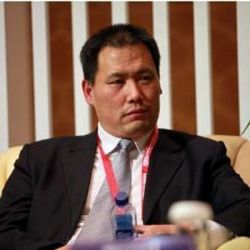Pu Zhiqiang
来自China Digital Space
Pǔ Zhìqiáng | 浦志强

Pu Zhiqiang (b. 1965) is a Chinese rights lawyer famous for defending freedom of speech. His clients have included high-profile artists like Ai Weiwei, journalists and bloggers, as well as victims of police torture. Pu has also been a leading advocate against reform through labor (laogai). He lost his lawyer’s license in 2016 following a criminal conviction, seen by many as retaliation for his activism.
Pu Zhiqiang received his law degree from China University of Political Science and Law in 1991. During his studies, he participated in the Tiananmen pro-democracy movement in 1989. He began practicing law in 1997. In the early 2000s, Pu began his career as a rights lawyer, defending victims of laogai, as well as writers and journalists who were targeted for their reporting. Pu was often surveilled, detained, and otherwise harassed by the authorities for his work. His social media posts were often censored.
In 2013, Pu Zhiqiang began calling for the investigation of Zhou Yongkang, former chief of China’s law enforcement and security apparatus from 2007 to 2013. Pu alleged that the stability maintenance policies implemented under Zhou violated the rule of law.
Pu was criminally detained in May 2014 after attending a gathering to mark the 25th anniversary of the June 4th crackdown. In 2015 he was convicted of “inciting ethnic hatred” and “picking quarrels and provoking trouble.” The prosecutors presented seven sets of Weibo posts as evidence, including his criticism of Beijing’s Xinjiang policy following the 2014 Kunming Railway Station knife attack:
The perpetrators behind the bloody Kunming Incident are sinful. I believe that Xinjiang secessionists were responsible for this terrorist attack. But this is the end result, not the reason. [Chinese]
If you say Xinjiang is part of China, then don’t treat it as a colony. Don’t be conquerors or exploiters. [Chinese]
Online discussion of Pu Zhiqiang and his sentencing were strictly controlled.
Pu finished serving his three-year suspended sentence in 2019. He is still under state surveillance as part of “placement and education” (安置帮教) measures.




